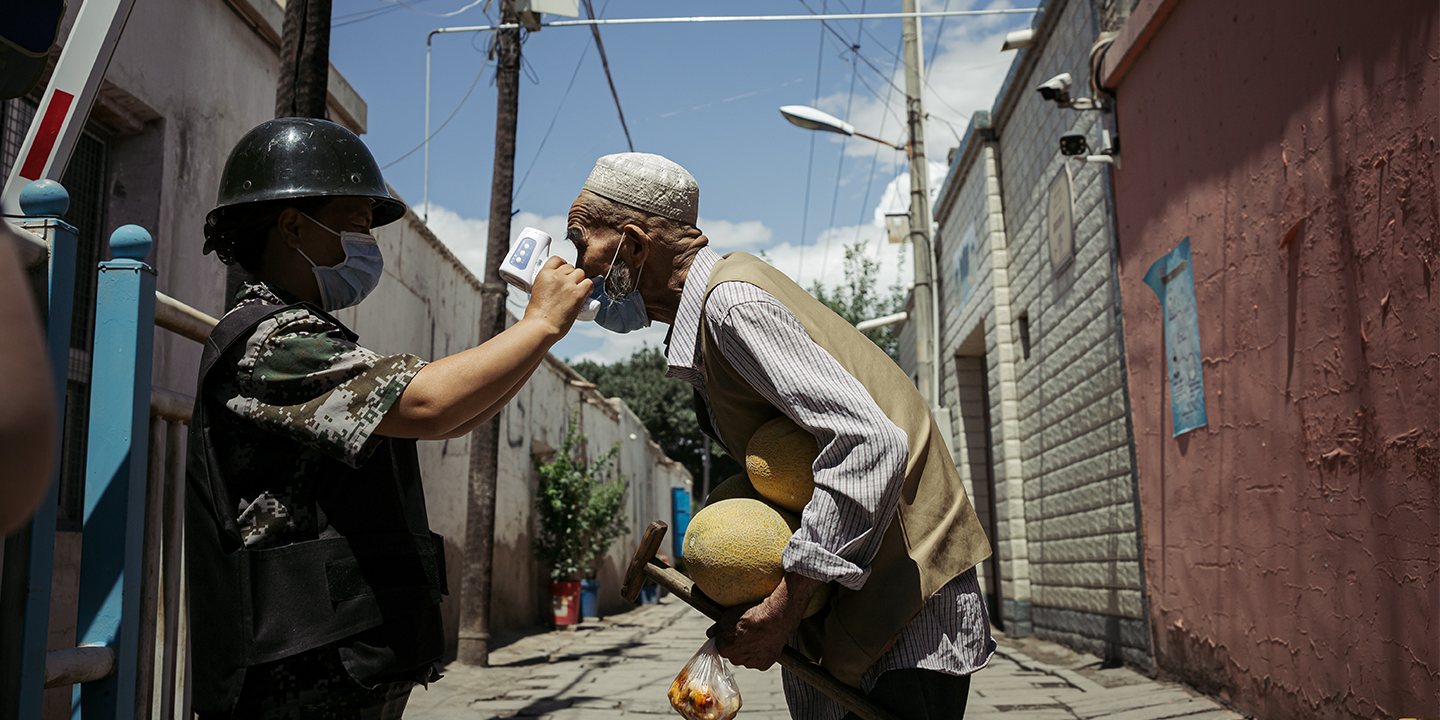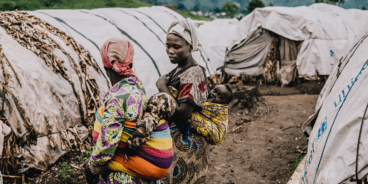

Atrocity Alert No. 212: COVID-19, Venezuela and Afghanistan
Atrocity Alert is a weekly publication by the Global Centre for the Responsibility to Protect highlighting situations where populations are at risk of, or are enduring, mass atrocity crimes.
Some governments utilize COVID-19 pandemic to abuse human rights
Since the World Health Organization declared COVID-19 a global pandemic on 11 March, the spread of the virus has intensified political and economic crises in a number of fragile or divided societies. Some authoritarian governments have utilized the pandemic to reinforce prejudicial policies and perpetrate violations and abuses of human rights.
On 14 July Philippines Interior Minister Eduardo Año announced that the Philippines National Police (PNP) would conduct house-to-house searches for COVID-19 patients in high transmission areas and bring the sick to isolation facilities. Minister Año warned that those refusing to comply would face imprisonment. The announcement follows other draconian measures employed by the PNP to enforce a COVID-19 curfew, including reportedly locking up violators in dog cages. The PNP have a long history of human rights abuses, including committing thousands of extrajudicial killings as part of President Rodrigo Duterte’s so-called “war on drugs.”
According to the government’s own figures, since President Duterte took office in June 2016, at least 8,663 suspects have been killed in police operations and by unidentified gunman carrying out vigilante-style executions of alleged drug offenders. Human rights monitors in the country indicate the number could be more than triple the official figure. President Duterte himself has publicly called on the police to also “shoot dead” those who break the COVID-19 curfew.
Meanwhile, strict “wartime” lockdown measures have been imposed in Xinjiang, China, after several dozen new COVID-19 cases were identified in Urumqi, the regional capital, last week. For years the Chinese government has conducted widespread surveillance of the ethnic Uighur population in Xinjiang as part of its approach to combatting “religious extremism.” Approximately 1 million Uighurs and other Muslim minorities are currently being held in detention camps in Xinjiang without formal charges, due process, or an ability to communicate with the outside world.
A recent New York Times investigation also identified a number of companies in China that use forced, or coerced, Uighur labor to produce personal protective equipment (PPE) for the COVID-19 pandemic. Under a government-sponsored labor transfer program, previously detained Uighurs are sent to factories that make face masks and other medical supplies, which are then sold on the global market. Uighur forced laborers live in segregated quarters that are rigorously controlled and are attached to the factories where they work.
The labor transfer program, mass detention camps and intrusive surveillance are all part of a larger Chinese government campaign of persecution targeting the Uighurs, including widespread and systematic violations and abuses of their human rights, enforced separation of Uighur children from their families, and involuntary abortions and sterilizations of Uighur women. These policies and practices could amount to crimes against humanity and genocide.
Since the start of the global COVID-19 pandemic in March, it has been clear that while the novel coronavirus cannot cause atrocities, it can be weaponized by repressive authorities to intensify identity-based conflicts, justify discriminatory policies, and enhance the threat facing vulnerable populations. As COVID-19 continues to spread, the threat presented by the pandemic also continues to evolve.
1,324 alleged extrajudicial killings in Venezuela so far this year
At least 1,324 individuals have allegedly been extrajudicially killed by state forces during “security operations” in Venezuela between January and May 2020. According to a 2 July report by the UN Office of the High Commissioner for Human Rights (OHCHR), many of the killings were carried out by so-called Special Action Forces (FAES) and targeted young men from low-income families. The High Commissioner, Michelle Bachelet, warned that extrajudicial killings are utilized to maintain social control and instill fear in the populace.
High Commissioner Bachelet warned of ongoing “high levels of impunity for killings in the context of protest, security operations, allegations of torture and ill-treatment and gender-based violence” in Venezuela.
OHCHR previously documented the alleged extrajudicial killing of more than 6,800 individuals in security operations between January 2018 and June 2019. The latest report on Venezuela also documents an ongoing pattern of short-term enforced disappearances and arbitrary arrests directed at perceived opponents of the government of President Nicolas Maduro. The government also continues to deny OHCHR full access to all detention centers, where torture, ill-treatment and sexual violence are allegedly rampant.
Venezuela’s current human rights and humanitarian crisis is also being exacerbated by the COVID-19 pandemic. Although President Maduro imposed a “state of alarm” in response to COVID-19, it has been utilized to intensify attacks on independent journalists, human rights defenders and civil society organizations. Doctors and other health workers, who have widely criticized the government’s COVID-19 response, have been harassed and detained.
In light of ongoing extrajudicial killings and systematic violations and abuses of human rights, the UN Human Rights Council should renew and expand the mandate of the Fact-Finding Mission for Venezuela during its upcoming September session. All UN member states, the European Union and the Organization of American States should continue to pressure the government to immediately end potential crimes against humanity being committed in Venezuela.
Religious freedom under attack in Afghanistan
At least 170 civilians have been killed and 242 wounded in 17 separate armed attacks targeting mosques, gurudwaras and other places of worship in Afghanistan since October 2019, according to the Afghanistan Independent Human Rights Commission. The UN Assistance Mission in Afghanistan (UNAMA) has also verified at least 18 attacks targeting religious leaders in Afghanistan so far this year, six of which occurred in June.
The so-called Islamic State of Iraq and the Levant-Khorasan (ISIL-K) perpetrated two of the deadliest attacks documented by the Commission. This includes an 18 October bombing of a mosque in eastern Nangarhar province that killed over 70 worshipers, and a 25 March attack on the Dharamshala Sikh Temple in Kabul that killed 25 civilians. ISIL-K and the Taliban continue to be the most frequent perpetrators of sectarian violence and terrorist attacks targeting religious minorities.
Under International Humanitarian Law (IHL), places of worship are entitled to special protection and deliberate attacks against civilian objects are prohibited. The intentional killing of civilians in places of worship constitutes a war crime.
Jahaan Pittalwala, Research Analyst at the Global Centre for the Responsibility to Protect, stated that, “The international community must remain intolerant of war crimes targeting worshipers as they practice their religion. Any peace talks between the United States, Afghan government and the Taliban must ensure that the rights of all religious minority communities are protected, and that there is criminal accountability for war crimes and other flagrant violations of IHL in Afghanistan.”

